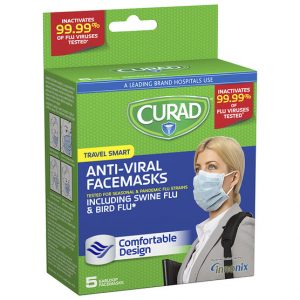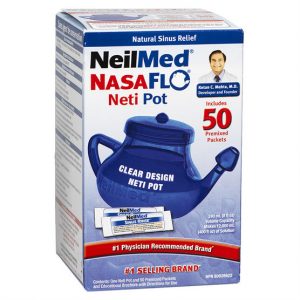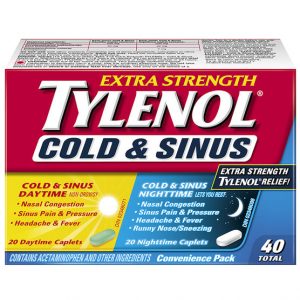
If you’re like many Canadians, you or someone you know felt icky, yucky, or downright gross over the holidays. An early start to cold and flu season caught us off guard, allowing illness to spread at parties and festive gatherings.
On a positive note, the holidays are ideal for getting needed rest. But, if you become sick during the traditional danger zone from January to March, deciding what to do can be much more difficult.
So, should you tough it out at work or stay home?
The answer depends on many personal variables, of course. But here are a few things to keep in mind that might help you decide (don’t forget: a lot of sick days can be avoided if you simply get the annual flu shot).
When To Go In:
If you have a mild sniffle or slight cough, it’s usually okay to head to work. Just be sure to let your coworkers know you aren’t feeling 100%. That way, they won’t be surprised if you refuse a handshake, avoid a social function, or choose to eat alone.
While at work, wash your hands often, disinfect them regularly, and use disinfectant wipes several times per day to clean your workstation. You don’t want to risk being known as ‘patient zero’ at the office this year. And be sure you have some tissues on hand, too. Ah-choo!
When To Stay Home:
If you feel worse than somewhat under the weather, it’s a good idea to stay home for at least a day if you can. This includes if you’ve suffered from moderate symptoms persisting for more than a few days. There are also a few red flag symptoms to watch out for.
If you have any of these symptoms, you’re better off staying home if you can:
1. Fever: Running a fever of over 37.5°C (100°F) is the number one sign you should stay home from work. It’s likely you have the flu and the next 36-48 hours will be pretty tough. You can get ahead of the game by jumping into bed straight away. But see a doctor if your fever rises over 39.5°C (103°F), persists for over 24 hours, or is accompanied by severe sweating or chills.
You should also remain home from work at least one extra full day after your fever breaks. Feeling rejuvenated? This can be a great opportunity to work from home.
2. Sore Throat: Ahead of other traditional cold symptoms, a sore throat is a red flag that you should consider staying home. To start, if your job involves speaking (and most do), this will be uncomfortable and could prolong your symptoms. More importantly, a sore throat is a potential symptom of laryngitis, mononucleosis, strep throat, or tonsillitis.
Take the day off to monitor and treat your symptoms. If your throat feels no better by the afternoon, and soothing teas or cough drops don’t seem to help, consider heading to a nearby clinic.
3. Coloured Mucus: To be completely clear (no pun intended), if you’re coughing up considerable amounts of phlegm, no matter the colour, you should consider staying at home if you can. In addition to several other very good reasons, nobody wants to hear all that ruckus at work.
That said, keep a close eye on the colour. If your mucus is distinctly green or yellow, it could be a sign of infection. At the very least, it shows your body is fighting off something nasty.
Final Thoughts…
- The old tale that you aren’t contagious when your symptoms are at their worst is pure malarkey. But the surprise for some is that you’re actually contagious with either cold or flu for up to a week after symptoms disappear.
- If your child is sick, especially if they show a red flag symptom, consider keeping them home from school. If they’re very young and you can’t find someone to be home with them, consider taking the day off work, if possible. Their teachers, classmates, and your fellow parents will thank you.
***
Want more advice on when to go to work and when to stay home?
Check out this LD Expert video of Pharmacist Gianni Del Negro on Global News with Sonia Sunger.
Here are a few of the helpful cold and flu-related health products discussed in the video, available at London Drugs in-store and online:
Note: Please consult your pharmacist before taking any cold or flu treatments.
 Antiviral Mask: If you’ve never tried one of these before, you might feel slightly self-conscious wearing what appears like a surgeon’s scrubs from the neck up. But you’ll be glad if it helps you avoid catching or spreading a cold this year. These masks are especially great to wear in large crowds or shared public spaces, such as transit, stores, or airports.
Antiviral Mask: If you’ve never tried one of these before, you might feel slightly self-conscious wearing what appears like a surgeon’s scrubs from the neck up. But you’ll be glad if it helps you avoid catching or spreading a cold this year. These masks are especially great to wear in large crowds or shared public spaces, such as transit, stores, or airports.
LD Expert says: “If you are concerned about getting sick or you want to prevent someone else from getting sick, you can put a mask on to prevent those droplets from going into the air.”
 Saline Nasal Rinse: Again, some might feel unsure about using one of these products for the first time. “The water goes where!?,” they ‘ll say. But many of those who have tried a neti pot for themselves absolutely swear by the results. It involves rinsing out your nasal cavity with what is essentially warm, salty water and it can make all the difference when you’re stuffed up.
Saline Nasal Rinse: Again, some might feel unsure about using one of these products for the first time. “The water goes where!?,” they ‘ll say. But many of those who have tried a neti pot for themselves absolutely swear by the results. It involves rinsing out your nasal cavity with what is essentially warm, salty water and it can make all the difference when you’re stuffed up.
LD Expert Says: “If you’re really congested, it’s hard to breathe and you’re not going to get a good night’s sleep. Using a saline product like a neti pot helps relieve some of that congestion and makes it easier for you to breathe and function.”

Cough, Cold, and Flu Relief: There are a wide variety of off-the-shelf treatments for cold and flu symptoms. They feature numerous active ingredients and can be taken in many different ways, including everything from pills to fruit chews. But know that none offer a true cure or a proper substitute for needed bed rest. Still, they can make you feel a bit better in the meantime.
LD Expert Says: “The old stand-bys in terms of helping with cough, nasal congestion, those sorts of symptoms. Keep in mind it’s really important that you do talk to your pharmacist about these products before you use them.”





